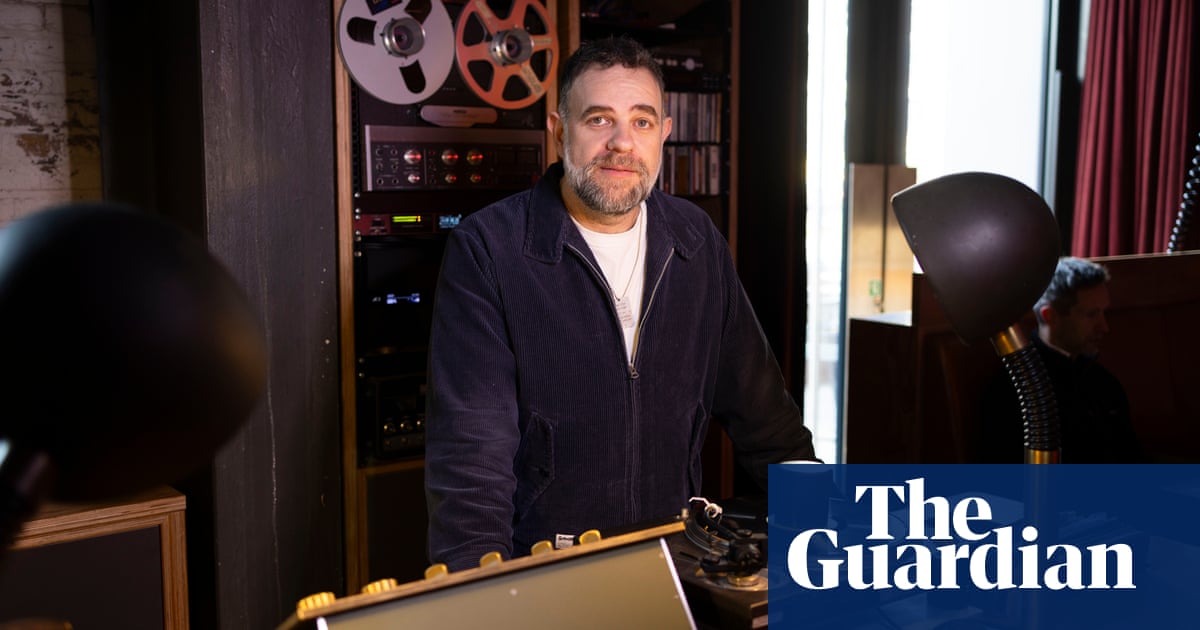There’s not much Dolly Parton and Northern rail bosses can claim to have in common. Frustrated commuters from Manchester to Middlesbrough might complain the train service barely works 9 to 5. What does unite the two is that neither can let go of the fax machine.
Banned by the NHS in England and dropped by the Premier League after one too many player transfers crumbled amid faulty transmissions, the persistence of the screeching and buzzing fax was this week blamed for commuter misery by the mayor of Greater Manchester, Andy Burnham.
With a face like thunder after half an hour hearing Northern’s executives explain their service’s dismal performance, he said: “I have heard that you’re still using fax machines … Can that possibly be true?”
It was, admitted the bosses. A quarter of a century after email took hold and 40 years since fax became ubiquitous, rostering and train crew processing are still done by fax in 2024, they explained. Burnham could barely believe it. There was a time when faxes delivered grand news – Michael Jordan’s 1995 return to the NBA (“I’m back,” he faxed) or the save-the-date invitations for Prince William and Kate’s 2011 wedding. But this was a cause for embarrassment. The fax use was a sign of “disregard for the travelling public”, Burnham fumed.
“It looks like the railway industry will get round to it when it gets round to it, when the faxes arrive,” he said.
There are fax machines in the collections of the Science Museum in London and the Smithsonian in Washington but Northern is not alone in keeping its use alive.
Country superstar Parton refuses to text and sticks to fax – even when messaging her goddaughter, Miley Cyrus, who sometimes has someone scan the fax and text it to her. Scores of fax machines were still whirring away in Welsh hospitals, responses to freedom of information requests from 2022 showed. In Germany, a quarter of companies still use faxes frequently, according to a survey published in July, and the machines are used in many German hospitals. “Faxophile” Japanese officials also still use them, citing a lower risk of hacking from the technology that turns a stream of sounds into pulses of ink.
Jason Fitzpatrick, who runs the Gadget Museum in Suffolk and has a collection of 40 fax machines, said their use was part of a wider persistence of out-of-date technology in places like the tube where “there are computers operating from the 1970s and they are so complex and custom-designed it’s hard to take them out”. Some military systems remain backed by computers that date back decades, he added.
The railway operator’s fax admission illustrated today’s extreme variation in technological progress. This week, Elon Musk claimed artificial intelligence “will be able to do anything that any human can do, possibly within the next year or two”. And yet a rail group carrying 85 million passengers a year is still relying on technology long since surpassed by computers.
Guardian readers have not entirely given up on the technology either. One still faxes her aunt who is more than 100 years old.
“Her arthritis makes it hard to type text messages on fiddly little mobile buttons, and the same goes for her hearing and the phone, so we fax missives to one another instead,” she said. “We type out chatty messages, but she writes by hand in great big capitals and wastes very few words. I think she feels a bit left out now that most organisations don’t have fax numbers.”
Another reader, who worked at a utility company, said: “when there’s a internet problem it’s used as an emergency measure to secure last-minute wholesale energy deals. When the old clunker does crank up, it scares the life out of the poor woman that sits next to it.”
In 2018, the then health secretary Matt Hancock ordered fax machines out of the NHS, calling the technology “archaic” and claiming “everyone else got rid of them years ago”. NHS England doesn’t know if Hancock’s order was followed, saying: “we don’t collect data on the number of fax machines”.
after newsletter promotion
Phil Collins is perhaps one of the most famous fax users after it was inaccurately reported that he said he had divorced his wife by fax in 1996.
“I was in Frankfurt and sent her a fax because the phone kept going down,” he told an interviewer in 2016. “I was arranging time to see the kids and referenced the fact that [the marriage] was over, but it was translated as me finishing our relationship by fax. I don’t know how that got into the papers. Well, I kind of do. I’ve never asked her.”
Last year, Ofcom, the UK communications regulator, announced that providing fax lines would no longer be the duty of British Telecom. Sounding the death knell for the fax, it said:
“Unless you’ve moved house or you’re a footballer’s agent – or indeed a footballer’s agent who’s moved house – then you might not have had much reason to use a fax machine in recent years.”
But even football agents have largely stopped using faxes, which had the benefit of enabling fast and accurate contract exchanges. A final straw seemed to be the fax glitch that reportedly scuppered David de Gea’s transfer from Manchester United to Real Madrid in 2015. The Premier League moved to online registration applications in December 2018.

.png) 2 months ago
17
2 months ago
17













































